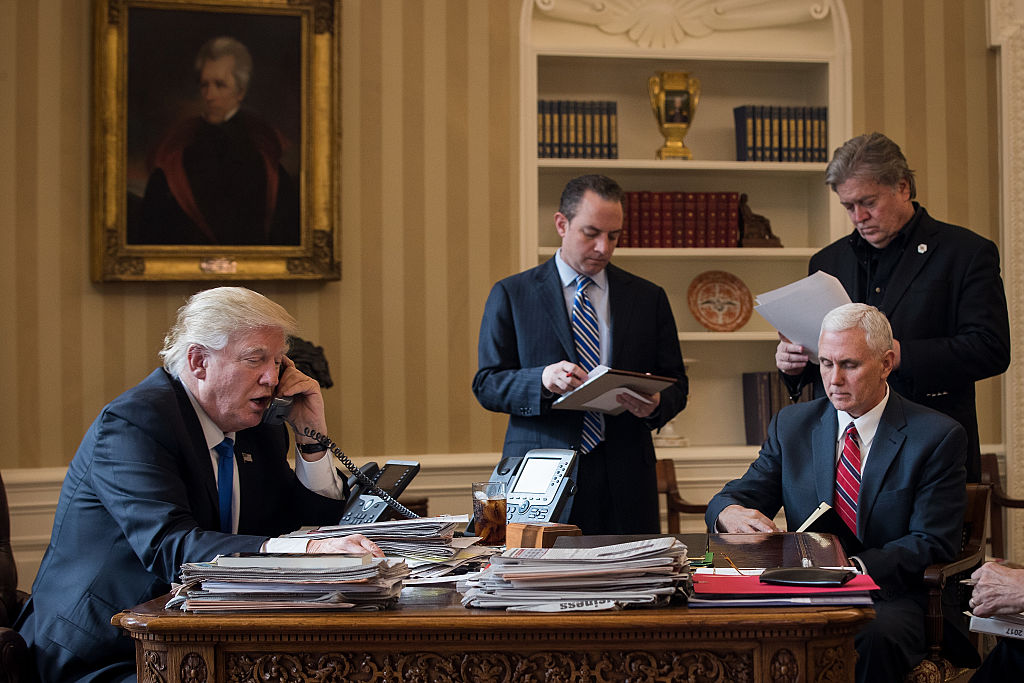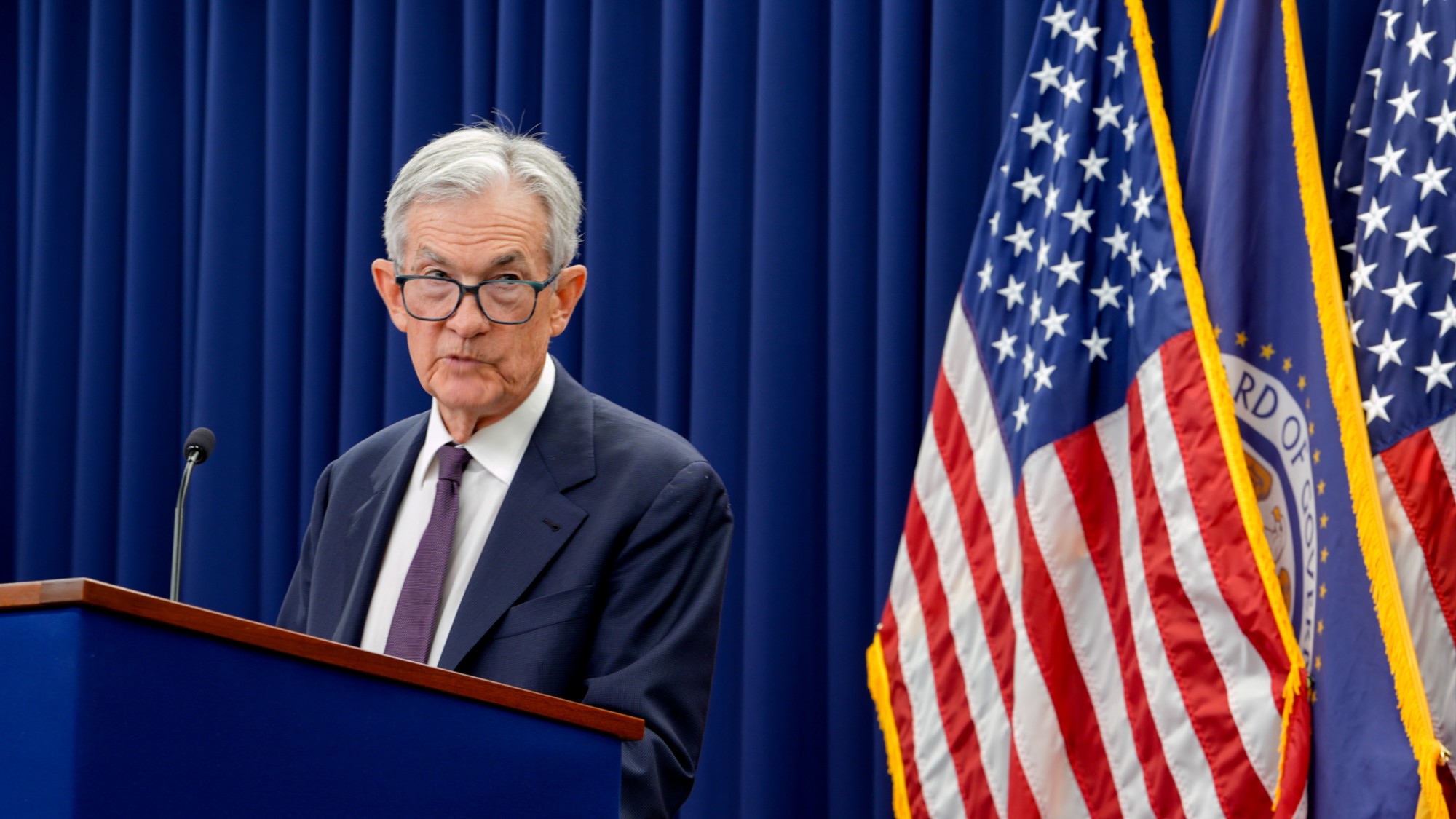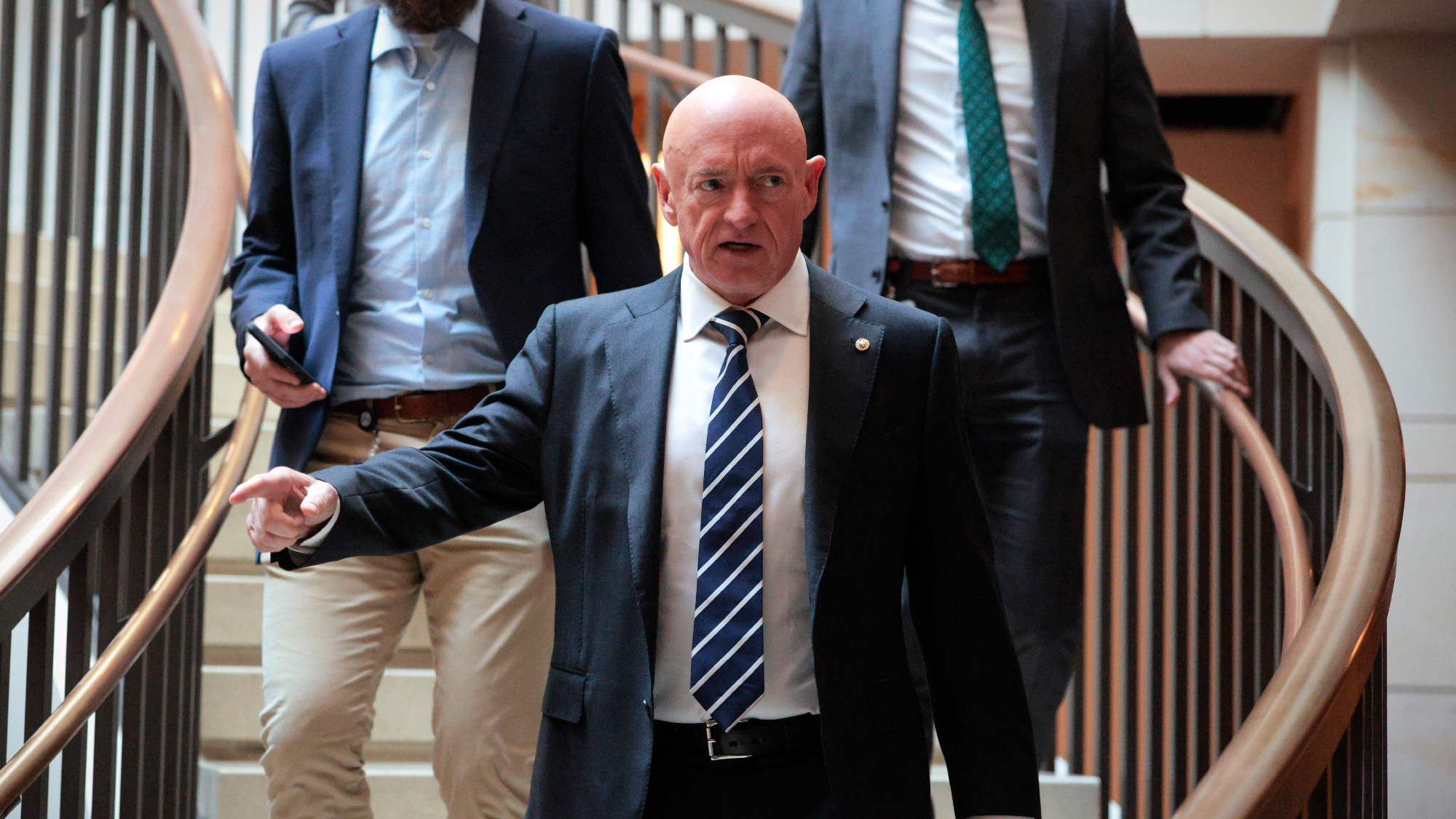How Trump and Obama's executive orders on Muslim refugees and immigrants are similar and different


Reacting to criticism about his broad, chaotically rolled-out executive order indefinitely banning refugees and immigrants from Syria, suspending entry of all refugees for 120 days, and putting a 90-day stop to all travelers from six other majority-Muslim countries, President Trump protested that former President Barack Obama did it first. "My policy is similar to what President Obama did in 2011 when he banned visas for refugees from Iraq for six months," Trump wrote. "The seven countries named in the executive order are the same countries previously identified by the Obama administration as sources of terror."
There is some truth to that. But as Washington Post fact-checker Glenn Kessler said in awarding Trump two "Pinocchios" for the Obama comparison, the comparison is "facile" and misleading. If you don't remember Obama's 2011 executive order — the administration did not publicize it — it involved slowing down the approval of new visas for Iraqi nationals, following investigative findings that two Iraqi refugees were implicated in making improvised bombs targeting U.S. troops in Iraq. The policy also included re-vetting 58,000 Iraqi refugees already settled in the U.S., as then-Homeland Security Secretary Janet Napolitano explained to Congress in September 2011.
The slowdown in approving Iraqi visas did prompt negative news stories and complaints from civil liberties and refugee advocacy groups at the time, and did appear to result in many fewer Iraqi refugees arriving in the U.S. in 2011, though the numbers rebounded in 2012. It did not stop all visitors from Iraq from traveling to the U.S. or halt refugee or visa applications, and unlike Trump's order, it was tied to a specific threat.
The Week
Escape your echo chamber. Get the facts behind the news, plus analysis from multiple perspectives.

Sign up for The Week's Free Newsletters
From our morning news briefing to a weekly Good News Newsletter, get the best of The Week delivered directly to your inbox.
From our morning news briefing to a weekly Good News Newsletter, get the best of The Week delivered directly to your inbox.
Trump identified only Syria by name in his executive order, and the other six nations covered in the ban — Iran, Iraq, Libya, Somalia, Sudan, and Yemen — did come from a list of countries "of concern" identified by the Obama administration under a visa-related law enacted in December 2015, the Visa Waiver Program Improvement and Terrorist Travel Prevention Act. The list did not affect nationals of those seven countries, though; it meant that some citizens of the 38 allied (mostly Western) countries eligible for a special visa waiver program who had spent time in the seven "countries of concern" had to "obtain a visa for travel to the United States, which generally includes an in-person interview at a U.S. Embassy or Consulate," as U.S. Customs and Border Patrol explained.
The last major difference between the Trump and Obama actions are that Trump's small group of advisers, led by Stephen Bannon, reportedly did not consult or prepare any officials at the Departments of Justice, Homeland Security, and State when writing the executive order, and DHS Secretary John Kelly learned about the major policy shift he was supposed to enact on a briefing call as Trump was signing it, The New York Times reports. CBP officials are still figuring out what the policy covers. Obama, meanwhile, "ran executive orders through a painstaking weeks-long process of soliciting feedback from agencies and briefing lawmakers," a "former official" tells Politico. "Sometimes it even asked expert lawyers in the private sector to check its work."
A free daily email with the biggest news stories of the day – and the best features from TheWeek.com
Peter has worked as a news and culture writer and editor at The Week since the site's launch in 2008. He covers politics, world affairs, religion and cultural currents. His journalism career began as a copy editor at a financial newswire and has included editorial positions at The New York Times Magazine, Facts on File, and Oregon State University.
-
 Which way will Trump go on Iran?
Which way will Trump go on Iran?Today’s Big Question Diplomatic talks set to be held in Turkey on Friday, but failure to reach an agreement could have ‘terrible’ global ramifications
-
 High Court action over Cape Verde tourist deaths
High Court action over Cape Verde tourist deathsThe Explainer Holidaymakers sue TUI after gastric illness outbreaks linked to six British deaths
-
 The battle over the Irish language in Northern Ireland
The battle over the Irish language in Northern IrelandUnder the Radar Popularity is soaring across Northern Ireland, but dual-language sign policies agitate division as unionists accuse nationalists of cultural erosion
-
 Trump sues IRS for $10B over tax record leaks
Trump sues IRS for $10B over tax record leaksSpeed Read The president is claiming ‘reputational and financial harm’ from leaks of his tax information between 2018 and 2020
-
 Trump, Senate Democrats reach DHS funding deal
Trump, Senate Democrats reach DHS funding dealSpeed Read The deal will fund most of the government through September and the Department of Homeland Security for two weeks
-
 Fed holds rates steady, bucking Trump pressure
Fed holds rates steady, bucking Trump pressureSpeed Read The Federal Reserve voted to keep its benchmark interest rate unchanged
-
 Judge slams ICE violations amid growing backlash
Judge slams ICE violations amid growing backlashSpeed Read ‘ICE is not a law unto itself,’ said a federal judge after the agency violated at least 96 court orders
-
 Rep. Ilhan Omar attacked with unknown liquid
Rep. Ilhan Omar attacked with unknown liquidSpeed Read This ‘small agitator isn’t going to intimidate me from doing my work’
-
 Democrats pledge Noem impeachment if not fired
Democrats pledge Noem impeachment if not firedSpeed Read Trump is publicly defending the Homeland Security secretary
-
 The billionaires’ wealth tax: a catastrophe for California?
The billionaires’ wealth tax: a catastrophe for California?Talking Point Peter Thiel and Larry Page preparing to change state residency
-
 Hegseth moves to demote Sen. Kelly over video
Hegseth moves to demote Sen. Kelly over videospeed read Retired Navy fighter pilot Mark Kelly appeared in a video reminding military service members that they can ‘refuse illegal orders’
